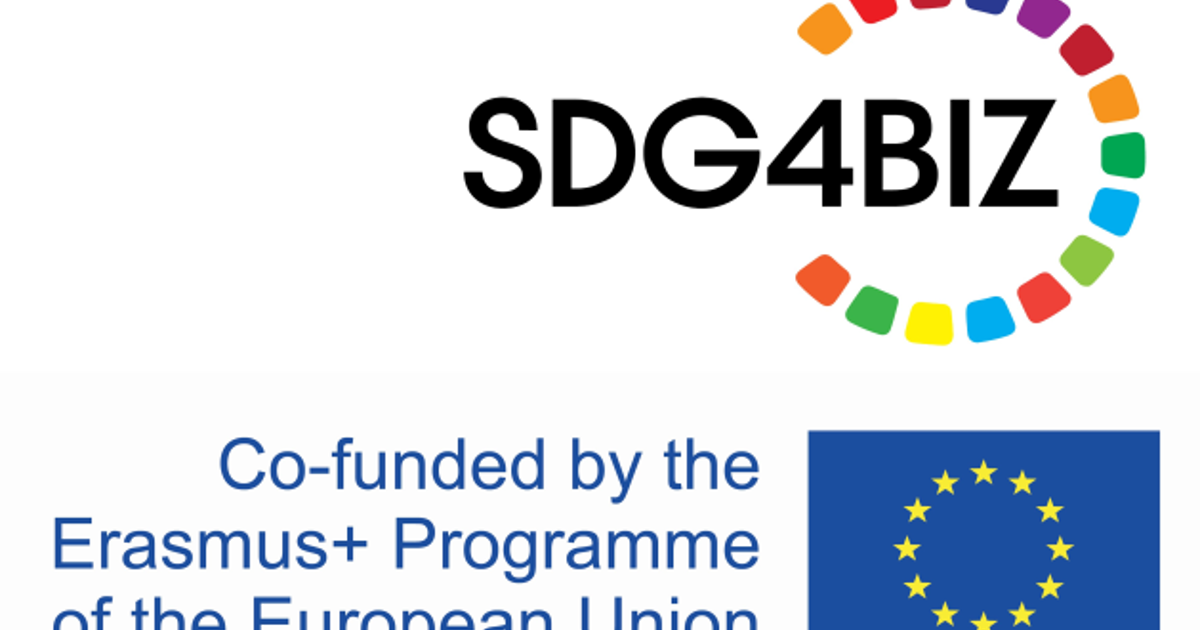The Sustainable Development Goals (SDGs) set by the United Nations are likely not met by the target year 2030, if companies do not recognize and utilize the business opportunities inherent in them. Knowledge Alliance for Business Opportunities in SDGs (SDG4BIZ) develops curriculum and training materials on recognizing and realizing the business opportunities in SDGs. SDG4BIZ-project is a collaborative effort uniting educators, researchers, and industry experts.
At the core of SDG4BIZ is a commitment to equip individuals with the acumen to recognise and harness business opportunities aligned with the United Nations Sustainable Development Goals (SDGs).
Annariikka Rosendahl, project partner from Haaga-Helia University of Applied Sciences, has been at the forefront of collating material for the different modules in SDG4BIZ. She highlights the project's goal of bridging the gap between sustainability theory and practical application. "We aim to redefine the narrative around sustainability. It's not just a political agenda; it's a pragmatic response to real-world challenges."
The SDG4BIZ courses were set up as self-paced MOOCs (massive open online courses) in itslearning. The curriculum is divided into five modules including a Welcome module, where the first gives you a comprehensive introduction to the topic of sustainable business opportunities. The other four modules cover specific industries; Health and Wellbeing, Food and Agriculture, Cities, and Energy and Materials, and provide a comprehensive understanding of the United Nations Sustainable Development Goals (SDGs) while delving into their practical applications in business contexts.
Henrik Paajanen, the itslearning project representative, emphasises a comprehensive role, stating: "Our commitment goes beyond providing a platform. We've been dedicated to offering continuous support, ensuring that the SDG4BIZ online courses offered through itslearning have become a dynamic and impactful learning experience."
The curriculum is divided into five modules including a Welcome module, where the first gives you a comprehensive introduction to the topic of sustainable business opportunities. The other four modules cover specific industries; Health and Wellbeing, Food and Agriculture, Cities, and Energy and Materials, and provide a comprehensive understanding of the United Nations Sustainable Development Goals (SDGs) while delving into their practical applications in business contexts.
Rosendahl explains; "We’ve aimed to provide businesses, students and educators with a robust and practical understanding of sustainability backed by peer-reviewed literature".
Integrating Sustainability: An Economic Imperative
Addressing skepticism surrounding sustainability education, Rosendahl points to the economic imperatives of integrating sustainability into business practices. Drawing from her experiences, she notes, "Private companies are usually driven by financial metrics. Sustainable practices aren't a choice; they're imperative for businesses to thrive in the long run."
Michael Keaney, from one of the partner institutions, Metropolia University of Applied Sciences, emphasises the global impact of sustainable business practices, shedding light on the growing awareness among consumers. "Individuals today are more conscious of the environmental footprint of the products they choose," he remarks. Keaney stresses the pivotal role of consumers in steering businesses towards sustainability. "It's a collective effort where individual choices resonate on a global scale, shaping the direction of businesses," he adds.
Rosendahl agrees, highlighting the significance of individual awareness; "Individuals play a crucial role in influencing larger entities. It starts with awareness and a commitment to sustainable practices.”
As the SDG4BIZ project concludes, Keaney sums it up; "SDG4BIZ stands as a transformative initiative, shifting the paradigm in sustainable business education. It's not just about knowledge; it's about imparting tangible skills that can drive real-world change."
Although the project ended in 2023, all registered users are still able to complete their training by the end of April 2024.
